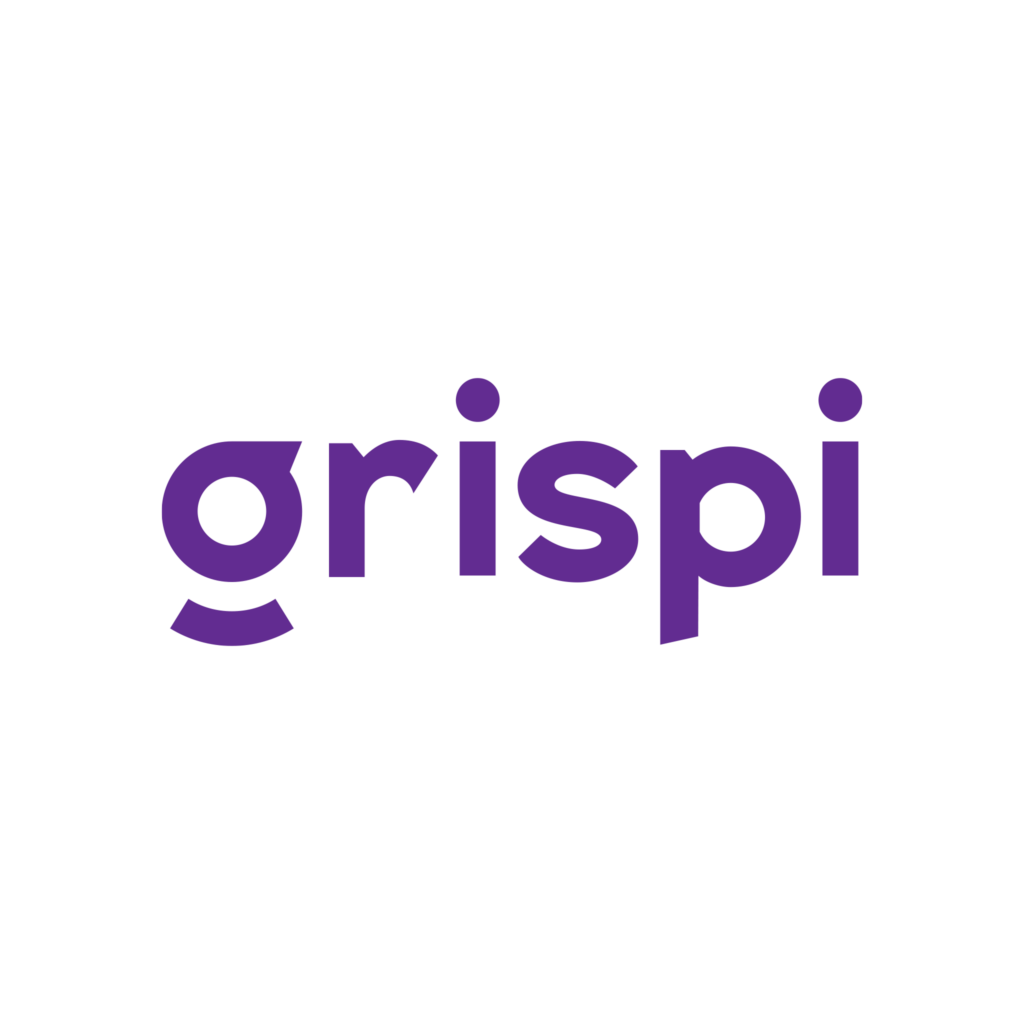Navigating Customer Communications Management Software
- April 9, 2024
Customer Communications Management (CCM) software plays a vital role in delivering personalized, timely, and engaging interactions across multiple customer touchpoints. Choosing the right CCM platform can significantly influence your organization’s ability to provide seamless, high-quality communication experiences.
In this article, we’ll explore the key factors in selecting the best CCM software, review five leading platforms, explain the fundamentals of customer communications management, and clarify the differences between CCM and Customer Relationship Management (CRM) systems—while highlighting the benefits of adopting a CCM platform.
How to Choose the Best Customer Communications Management Software?

Selecting the ideal CCM software requires a thoughtful evaluation of your organization’s unique needs and long-term goals. Start by defining your communication requirements—considering channels such as email, SMS, print, web, and social media.
Key considerations include:
Scalability and flexibility to grow with your business
Customization options to tailor communications
Ease of integration with your existing systems (CRM, ERP, etc.)
Compliance with regulatory standards like GDPR or HIPAA
User-friendliness and a modern interface
Quality customer support and documentation
Seek insights from existing users, compare online reviews, and request product demos or trials to evaluate features, usability, and alignment with your workflows.
The 5 Best Customer Communications Management Software
Grispi
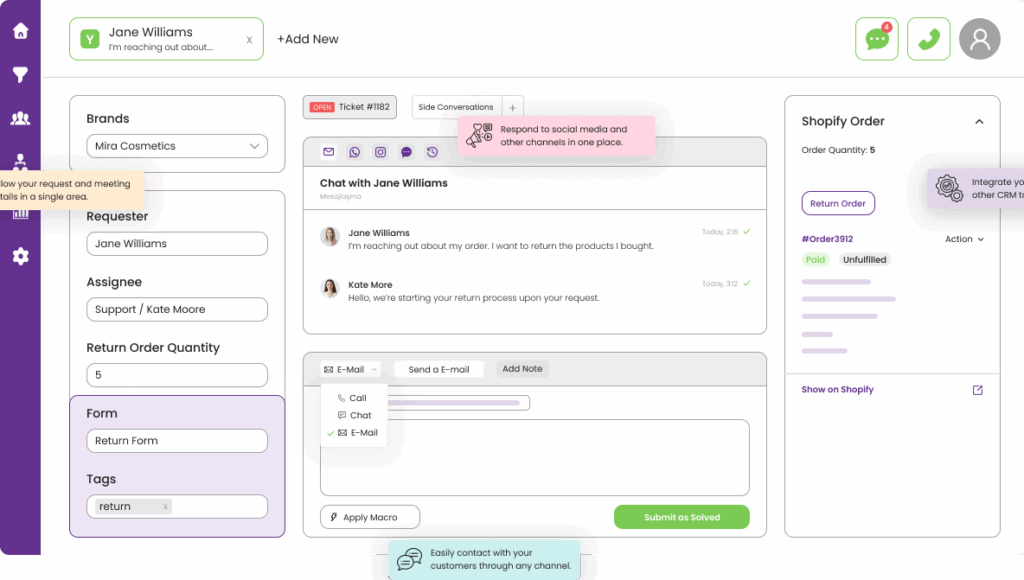
Grispi is a powerful customer service and communication platform designed to streamline multichannel interactions in one centralized workspace.
Key features:
Unified inbox for managing email, phone, chat, and social media
Seamless integration with Alotech for advanced call center capabilities
Intuitive and customizable filter system for role-based visibility
Ideal for teams managing high-volume requests with clear task prioritization
Zendesk
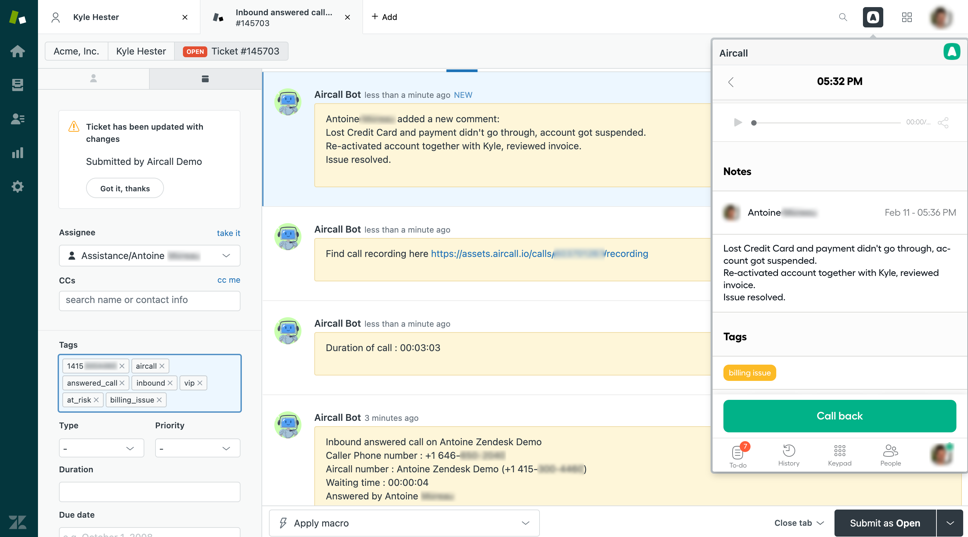
Zendesk is a leading all-in-one customer service solution, providing a wide array of tools to support omnichannel communication.
Key features:
Ticketing, live chat, voice, social, and email support
Automated workflows and macros for efficiency
Self-service portals and knowledge bases
Advanced analytics for performance tracking
Suitable for businesses of all sizes seeking scalable support tools
Front CRM
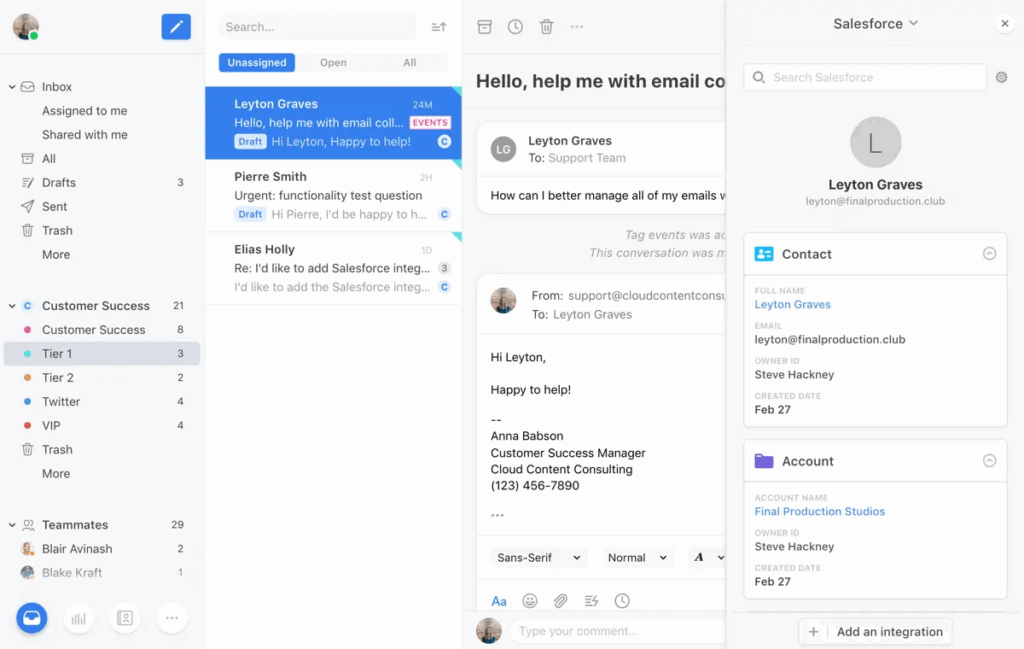
Front CRM enables teams to manage customer interactions collaboratively through a shared inbox experience.
Key features:
Unified email and chat management
Collaborative tools like internal comments and shared drafts
Workflow automation and message templates
Ideal for teams emphasizing internal communication and transparency
Help Scout
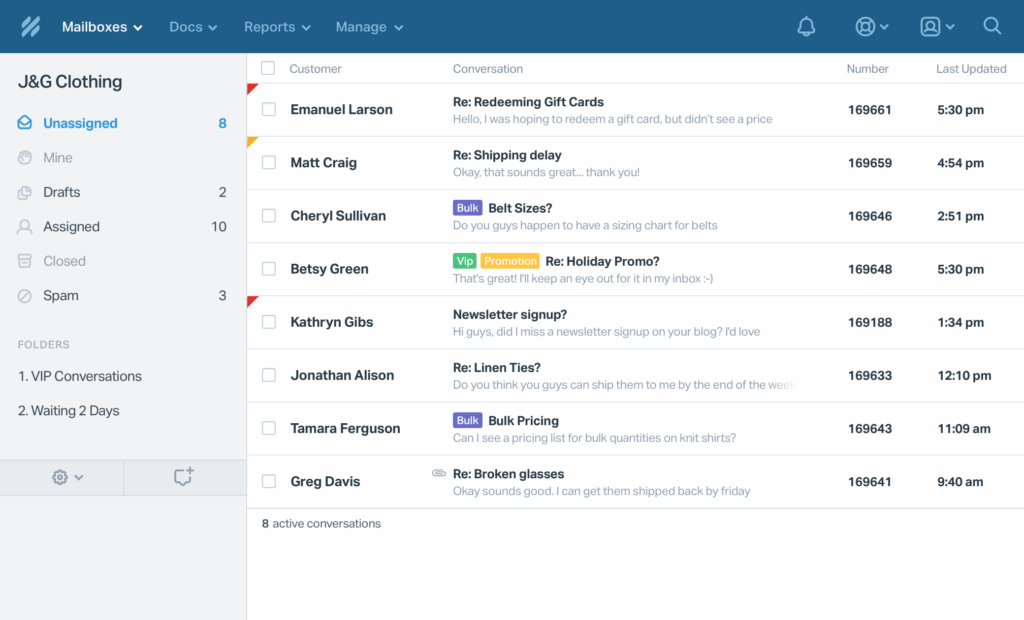
Help Scout offers a user-friendly customer support platform focused on simplicity and personalization.
Key features:
Shared inbox, knowledge base, and satisfaction surveys
Customizable tags, saved replies, and automation tools
Minimal learning curve and clean UI
Best suited for small to medium-sized businesses
Intercom
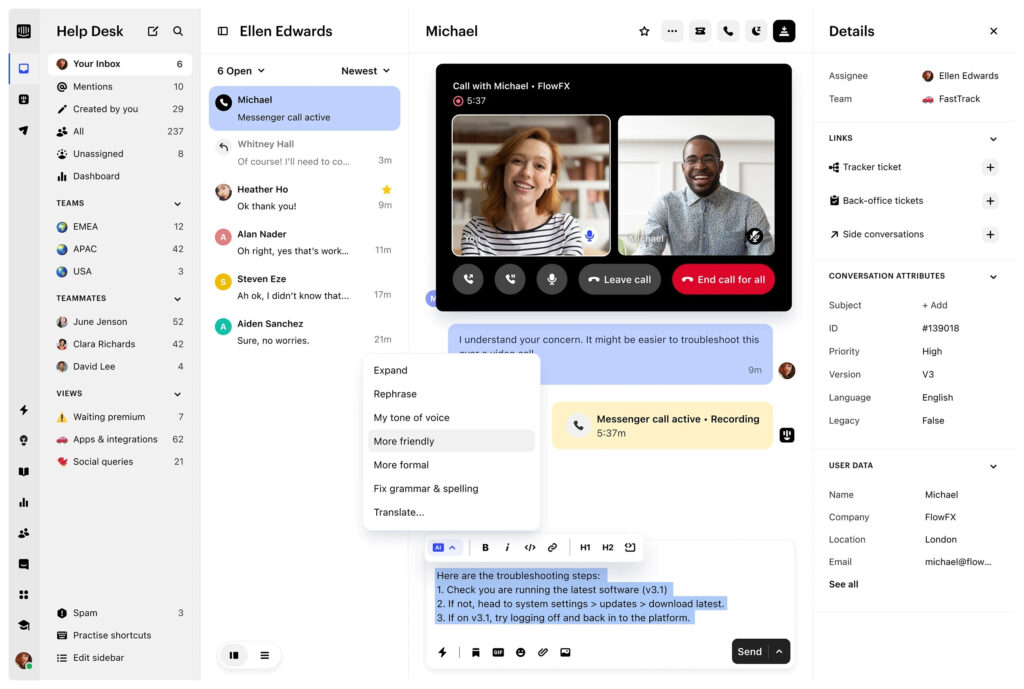
Intercom is a customer engagement platform that blends messaging, automation, and behavioral data to drive proactive communication.
Key features:
Real-time chat and automated bots
Targeted messaging based on user segmentation
Customer journey tracking and analytics
Excellent for SaaS and digital-first businesses aiming to increase engagement and retention
CCM vs. CRM: What’s the Difference?
While CRM (Customer Relationship Management) systems focus on managing customer data, tracking interactions, and supporting sales and marketing, CCM (Customer Communications Management) systems are designed specifically for:
Creating
Managing
Delivering
Tracking
…personalized communications across multiple channels.
CRM = relationship management
CCM = communication delivery optimization
CRM platforms provide a 360° view of the customer journey, while CCM platforms ensure those journeys are enhanced with relevant, timely, and engaging touchpoints.
Key Benefits of Adopting a CCM Platform

Implementing a CCM solution provides significant strategic and operational benefits:
Personalized Communication
Craft messages tailored to individual customer behaviors, preferences, and demographics.Multichannel Engagement
Deliver consistent communication across email, SMS, print, chat, and social platforms.Enhanced Customer Experience
Build trust and loyalty with timely, relevant, and clear communications.Operational Efficiency
Automate repetitive tasks and streamline processes to reduce costs and increase productivity.Compliance & Security
Ensure communications meet legal and industry standards for data privacy and security.
Understanding the distinction between CRM and CCM—and choosing the right CCM platform—empowers businesses to communicate more effectively, improve operational agility, and foster lasting customer relationships.
Contact Us
Fill out the form for detailed information and demo account, let us call you.
